Kit by: Jessica Ellerbrock
Founder | Wander Karma
My Wander Karma kit consists of artisan treasures that I have found throughout Colombia, Morocco, and Turkey. Every piece of jewelry, every handbag, and every piece of home decor is a one of a kind creation, made by a true artisan. The artisan has expressed themselves in each of these creations through colors and symbols. All of the products we select on our travels are representative of the country we sourced it from — and so preserve the cultural traditions that the artisans have been using for years. Importantly, We source these products with fair trade pricing and practices, and we ensure a portion of the profits go to a cause that supports the health and economic empowerment of women. For example, when you purchase marked products, we give a portion to support women going through Metastatic Breast Cancer. We also believe it’s important to support communities abroad. We support Wayuu indigenous tribes that are currently dealing with a life threatening drought (that’ll only get worse with climate change) through the UNICEF Foundation. Look good. Feel good.
fair trade handbags jewelry home decor handmade local artisans wander karma
Discover Fair Trade, handmade handbags, jewelry & handwoven, cultural rugs made by artisan women from South America & Asia – all thanks to Wander Karma. Discover Fair Trade, handmade handbags, jewelry & handwoven, cultural rugs made by artisan women from South America & Asia – all thanks to Wander Karma.
Fair Trade Handbags, Jewelry & Home Decor
Handmade by Local Artisans From South America, Asia & Africa
Charitable, Hand-Woven, Cotton Shoulder Bag – Made by Women Artisans in Colombia
By: Wander Karma
A Better Alternative
Colors. Tassels. Artisan-made by the Wayuu Indigenous Tribes in Colombia. A bag perfect for the beach, festivals, and exploring a new City. All of our Colombian Wayuu mochila bags are handwoven by the Wayuu women from the Guajira desert in Northern Colombia – and when you make a purchase, our Giveback Program supports these talented artisans. We donate $5.00 per purchase to the #desoqueayuda UNICEF Foundation to provide water and sanitation systems, along with nutrition and hygiene education.
The Story of The Wayuu Women & Their Children (click)
The Wayuu people are an indigenous Latin American group inhabiting the desert of La Guajira Peninsula which borders Colombia and Venezuela. Wayuu are ahead of the times with a profound respect for women. They are organized in matrilineal clans. The Wayuu children carry their mother’s last name, making the Wayuu women the center of the family and cultural leaders. One of the most significant cultural aspect is the Wayuu women’s art of weaving Mochila bags. To keep the tradition alive, each Wayuu mother teaches her daughter how to weave and crochet. To the Wayuu, weaving is a symbol of wisdom, intelligence, and creativity. Each design is unique to the weaver, telling a story through the bag’s colors, patterns, and shapes. Today, the Wayuu Mochila bags provide financial support to preserve their way of life, and to help buy food and water in the severe drought. Due to climate change and changes to their water supply, a severe drought has hurt the Wayuu’s food supply, clean water supply, and caused malnutrition among their children and animals. According to Unicef, 1 out of 10 children suffer from malnutrition in Colombia. The Wayuu Indigenous community is one of the highest risk groups to this due to drought conditions and closure of the Venezuelan border.
RATING
Charitable, Hand-Beaded Necklace – Made by Women Artisans in Colombia
By: Wander Karma
A Better Alternative
Colors and rainbows 🙂 This beaded necklace was handmade by the Embera Chami tribe on the West Coast of Colombia, which reaches into Panama. The women hand-bead these intricate necklaces and bracelets to tell the stories of the strength of women in their culture. These jewelry pieces are also part of our Giveback Program. We donate $5.00 per purchase to the #desoqueayuda UNICEF Foundation to provide water and sanitation systems, along with nutrition and hygiene education to communities in need.
The Story of The Embera Chami Women Tribe (click)
The Embera Chami people mostly live on the Western region of Colombia and Panama along the river systems. The women create these beautiful beaded collar necklaces called Okamas. The Embera Chami people believe that women carry the weight of the world on their shoulders, and they create these Okamas as a way of adorning and glorifying this weight we carry. The Embera people are also at risk of losing their culture and heritage due to being displaced by paramilitary conflicts in Colombia in the past. We all know the weight that women still carry on their shoulders, and we hope that your Okama will lighten your load!
RATING
Charitable, Handmade Vintage Turquoise & Lapis Blue Stone Bracelet Cuff – Made by Women Artisans in Morocco
By: Wander Karma
A Better Alternative
Vintage Turquoise and Blue Lapis stones decorate this cuff bracelet and remind us of the Chefchouen blue streets. There is certainly a valuable history in the jewelry designed by artisans in Morocco — and this piece is no exception. When you purchase this bracelet, 5% of all sales are donated to METAvivor: an organization dedicated to the specific fight of women and men living with stage 4 metastatic breast cancer. Be beautiful and support a good cause.
RATING
Charitable, Hand-Woven Wool Turkish Rug (Vegetable Dyes) – Made by Women Artisans in Cappadocia
By: Wander Karma
A Better Alternative
I love kilim rugs for the romance and meaning behind the design. Handwoven in Cappadocia, the symbols carry many meanings for the women that weave the rugs — such as the hairband symbol (Sacbagi), which indicates one’s desire to get married. Many of the other symbols woven into the rug represent the beautiful nature in Cappadocia — like fairy chimneys and streams of running water. Like the bracelet above, when you purchase this piece, 5% of sales are donated to METAvivor.
The Story of The Turkish Kilim (click)
At the bus stop in Goreme, we met a local who said he would take us to the origin of where the turkish rugs are made – which they called the factory. This was not a typical manufacturing factory, but a place where local women handweave the rugs. The women are at different levels based on how many knots they can make per inch for the oriental pile rugs. Kilims are also made there, which we were the most interested in. The concentration and artistry was beautiful to see in person, and to meet these women who are the breadwinners to support their family. After we learned how the rugs were made, we were brought into the showroom where the selling process begins with a cup of tea and getting to know each other. There is not pressure, but just a love for rugs by Mustafa. They show you a plethora of rugs in different qualities and types. We zeroed in on these kilim rugs that are so excited to bring to wanderkarma.
RATING
Handmade, Upcycled Tote Bag Made from Scrap Burlap Fabric (Peru)
By: Wander Karma
A Better Alternative
Upcycled from leftover fabrics, Shannon, a friend I met in Peru, creates one-of-a-kind bags that work with colors and textures to create a statement, tote bag. The patchwork is made out of burlap and upholstery fabrics. The design sewn into the denim fabric was inspired by — and aims to represent — a cityscape. The bag is roomy enough to fit everything you need on your next city adventure.
RATING
View Our Research Standards.
Each of our six badges has its own unique set of metrics. These are some of the qualities (i.e., metrics) we try to look into when assessing a product and brand with respect to each of our badges:
Socially Responsible (purple triangle):
+ Does the company abide by Fair Trade Practices, or is it Fair Trade Certified;
+ Is there a commitment to Corporate Social Responsibility (CSR);
+ Is the company philanthropic – does it donate goods or services to environmental or humanitarian efforts;
+ Does the brand promote corporate transparency;
+ Are there any community engagement initiatives set in place;
+ Does the company communicate healthy and equitable working conditions along the supply chain;
+ Does the brand abide by fair and honorable employment values;
+ Is there a disclosure of sourcing methods, and are such materials or ingredients sourced responsibly;
+ Does the brand have a cause-driven mission towards human & environmental health & well-being.
*We do not conduct in-person audits. Oftentimes we will consult the language and standards set by third-party certifications and seals such as Fair Trade Certified, B Corp Certified, Rainforest Alliance Certified, Green America Certified, etc. We will, however, do independent research with respect to certain badges and utilize peer-reviewed articles. Also, please note that according to the Journal of Economics and the EPA, “social responsibility” does include practices and commitments that support environmental health and well-being; thus, the qualities of this badge may overlap with our other badges.
Eco-Conscious (red triangle):
+ Does the company practice sustainable modes of production;
+ Is the product composed of materials and/or ingredients that are biodegradable;
+ Are the materials and/or ingredients compostable;
+ Does the company have carbon reduction or mitigation strategies set in place;
+ Do the involved materials and/or ingredients have a relatively low environmentally impact;
+ Does the company utilize reduce or reuse principles in their facilities;
+ Does the company use renewable or efficient energy technologies in the production of their good(s);
+ Are there practices in place that work to maintain ecosystem biodiversity;
+ Is environmental stewardship a part of their business model.
*We aim to be transparent and objective when it comes to labeling a product as “Eco-Conscious”, and reject “greenwashing”. According to marketing and advertising standards set by The Federal Trade Commission’s (FTC) Green Guides, it is most accurate to communicate not that a product is necessarily “good” for the environment, but that it is a “better environmental alternative”. This is the message we aim to communicate in labeling a product as “Eco-Conscious”.
Quality Materials/Ingredients (M/I) (green triangle):
+ Does the product contain organic or certified organic m/i;
+ Is there a significant degree of m/i ‘naturalness’;
+ Is the product non-GMO or Verified Non-GMO;
+ Are the m/i biodegradable;
+ Are the m/i compostable;
+ Do the m/i raise little to no concern in terms of m/i toxicity;
+ Is the product treated with harsh chemicals;
+ Is there a healthy ratio of synthetic or artificial m/i to natural m/i;
*For select “Pantry” products, we may look into health and nutritional value.
*For select products, we may consult reviews to assess m/i effectiveness.
*Generally, these are the ingredients that we try to steer clear of: Acesulfame-K (acesulfame potassium), Acetylated ester of mono- and diglycerides, Ammonium chloride, Antibiotics, Artificial colors (Synthetic and FD&C Certified), Artificial flavors, Aspartame, Astaxanthin, Azodicarbonamide, Bentonite, Benzoates, BHA (butylated hydroxyanisole), BHT (butylated hydroxytoluene), Bisulfites, Bromated flour, Brominated vegetable oil (BVO), Calcium bromate, Calcium disodium, EDTA, Calcium peroxide, Calcium propionate, Calcium stearoyl-2-lactylate, Calcium sorbate, Caprocaprylobehenin Carmine, DATEM (diacetyl tartaric and fatty acid esters of mono and diglycerides), Diglycerides (acceptable in supplements), Dimethylpolysiloxane, Dioctyl sodium sulfosuccinate (DSS), Disodium calcium EDTA, Disodium dihydrogen, Disodium guanylate (GMP), Disodium succinate, Dimethylamylamine (DMAA)… Read more at Free From 101.
To see the rest of our badges and read our full list of indicators, please visit our “About” page.
Hi, my name is Jess! I have always had a serious case of wanderlust, so I finally took a break from a retail career and traveled to try to cure my wanderlust last year (which I still am not cured!) This is where my idea for Wander Karma came form. When I visited a new country, I found myself drawn to artisans and their process of creation. They often told stories through their art and preserved ancient traditions of craftsmanship from their culture. I wanted to give the artisans a voice and give back to their community. With my retail buying background, I created an e-commerce store called Wander Karma, which did just that! Throughout my 15 year retail buying career, I saw consumers purchasing product with no meaning and not always fully supporting the makers. I wanted to change this. My mission is to see our purchasing dollars go to supporting artisan work and portions of profits go to helping the artisans and their countries’ prosper. My motto is When you Wander, Good Karma appears. I am hoping to keep wandering upon these artisan treasures, and creating good karma by helping artisans sell their creations.
Have a question? I’ll answer.
Hippie Soulstice: Everyday Eco Ethical Fashion, Handmade w/ Upcycled Fabrics
How To Save Money, While Reducing Paper Waste in Your Kitchen #ZeroWasteKitchen
How to Be Green & Energy Efficient at Home, Using New Modern Tech
Minimalist Eco Ethical Clothing: Jackets, Tops, Shoes & More, in Black
5 Top Reviewed, Best Apps for Stopping, Combating Climate Change
How to Reduce Your Carbon Footprint: 5 Best Green Tech Essentials
Get on the list.

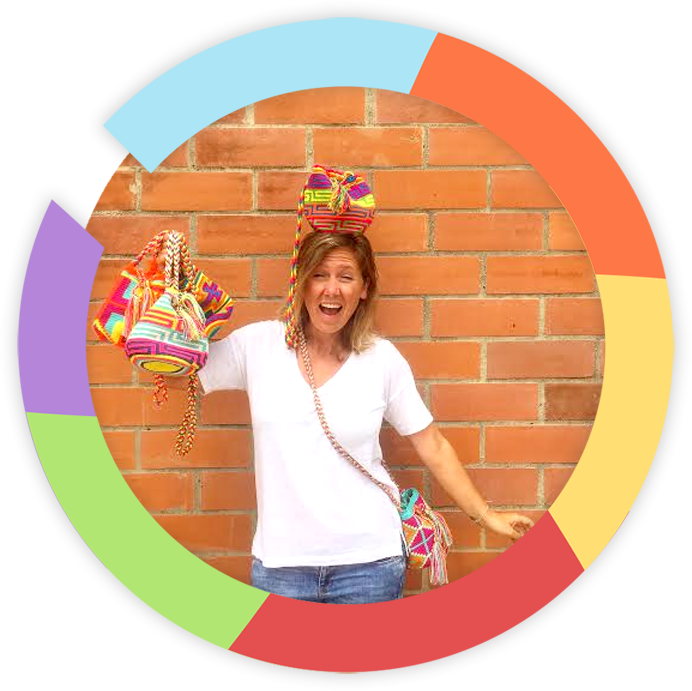
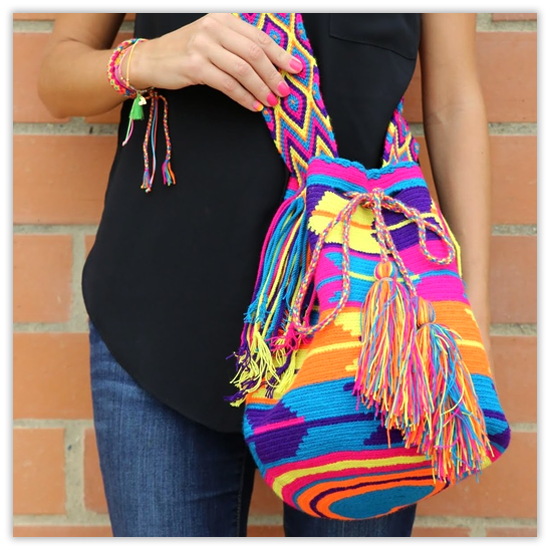
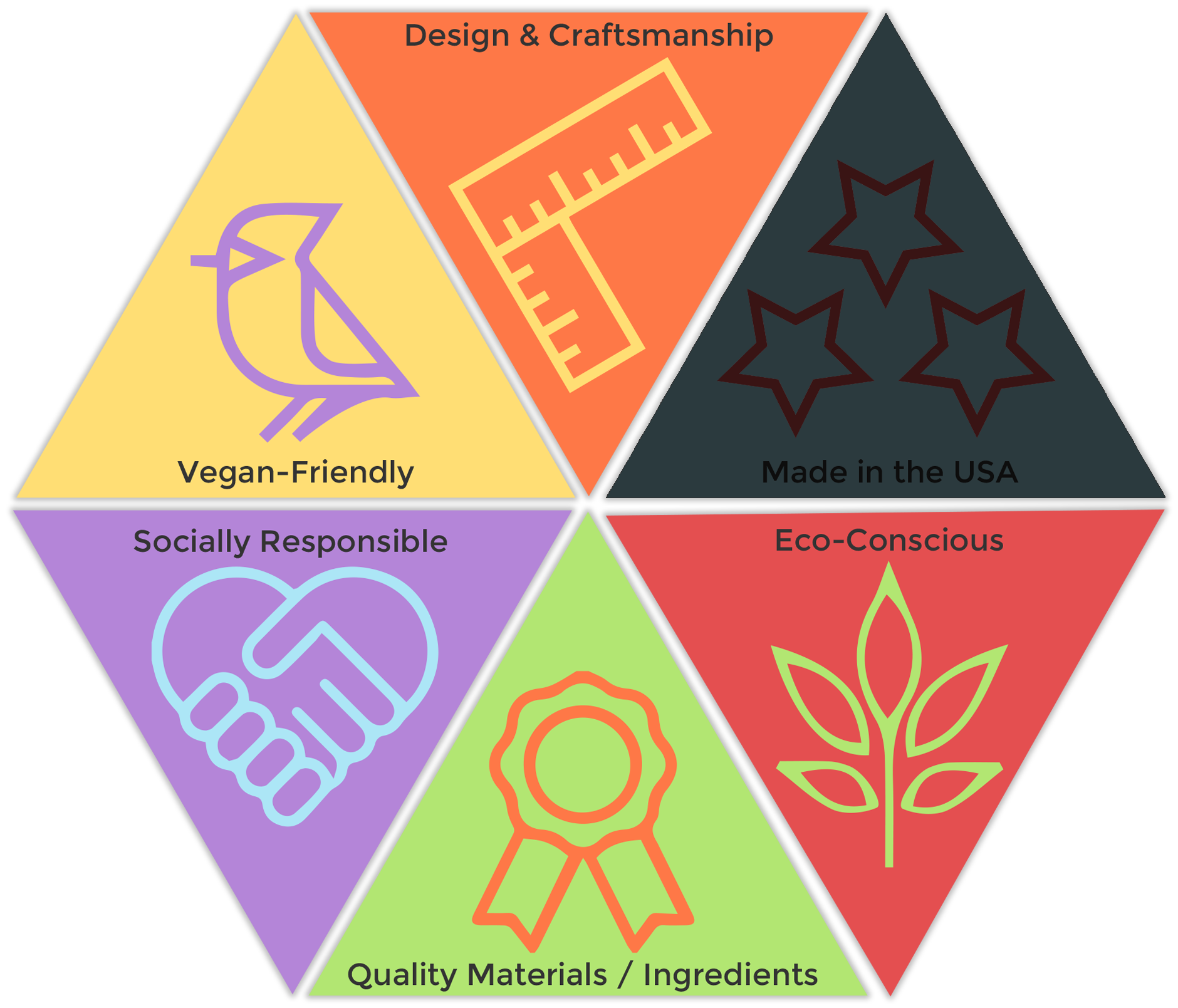
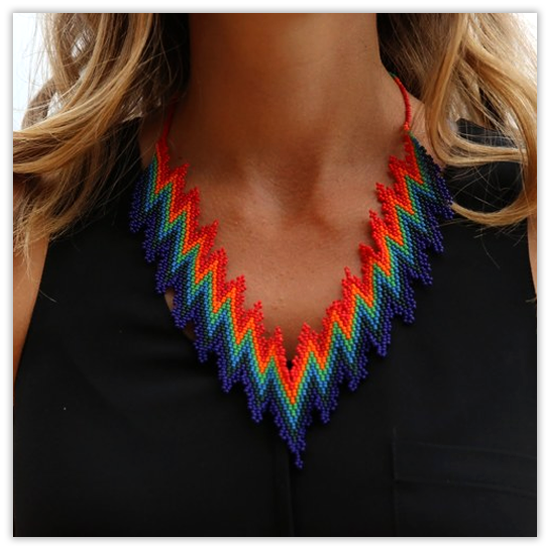
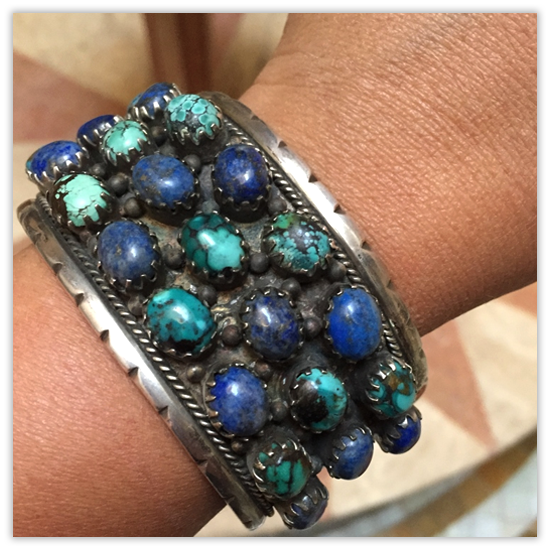
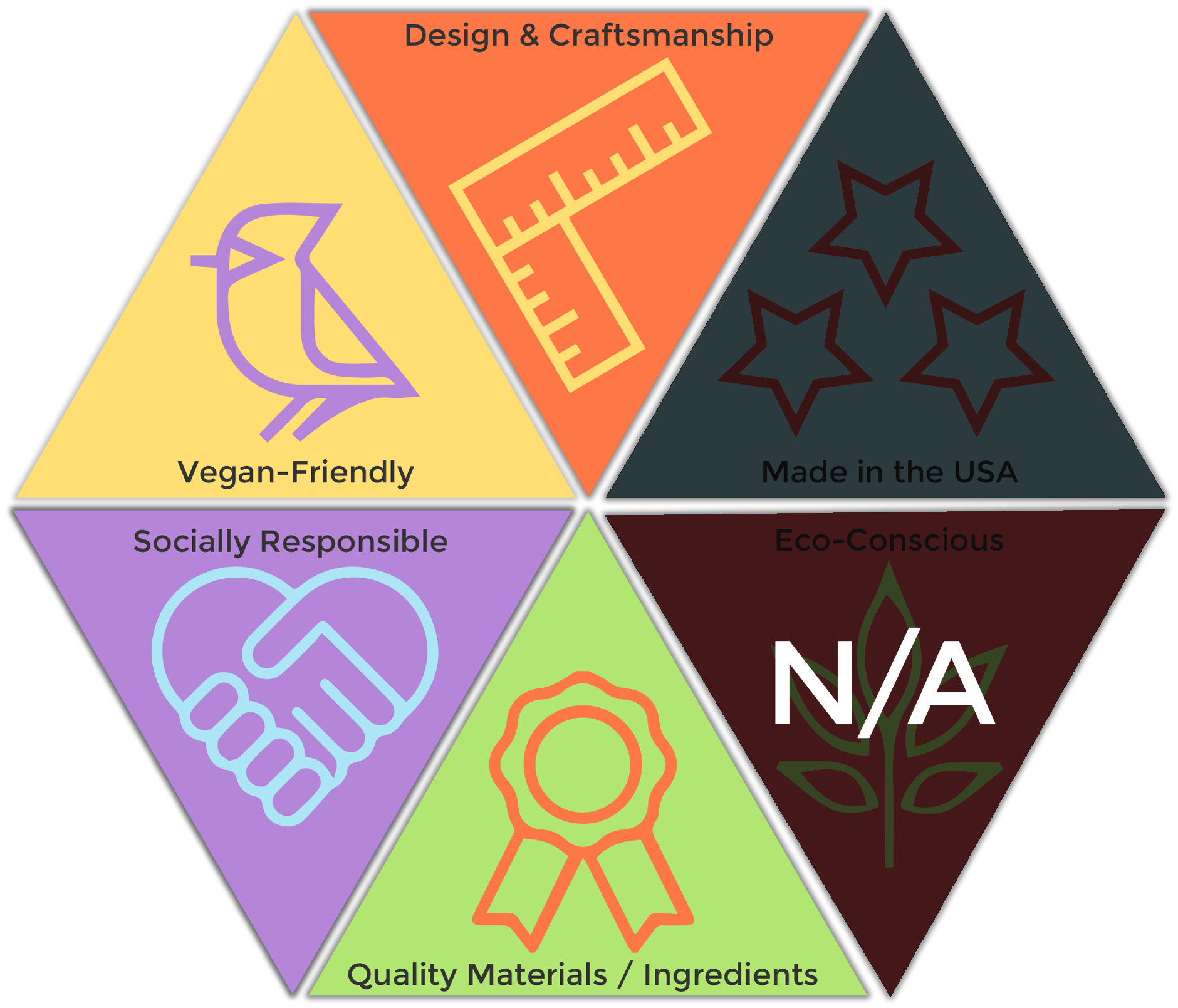
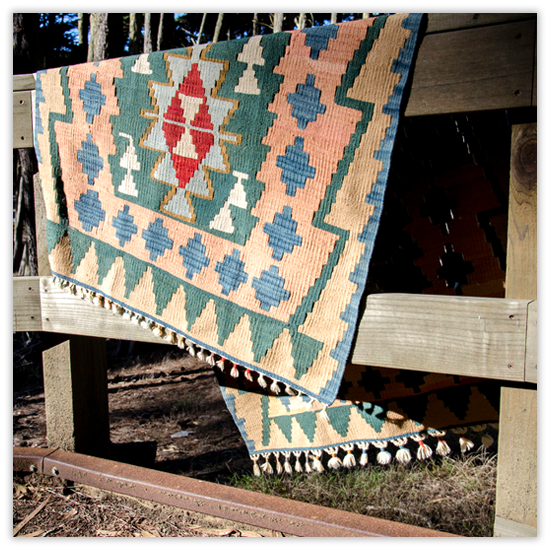

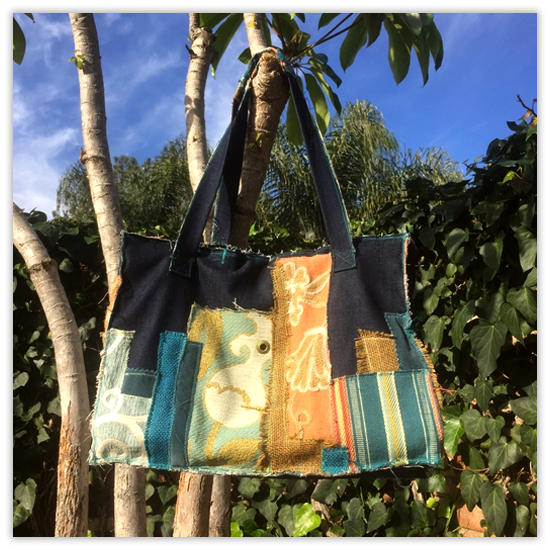
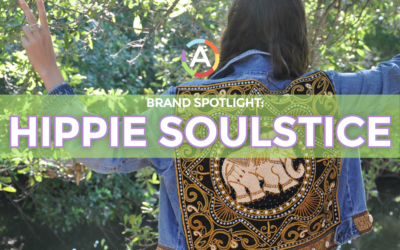
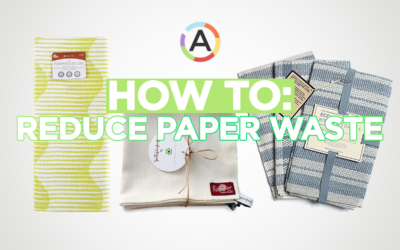
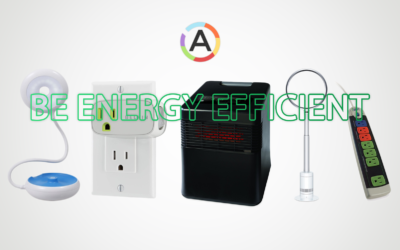
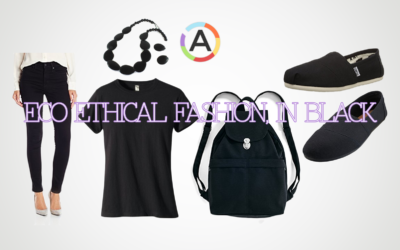
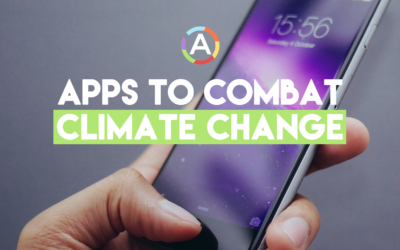
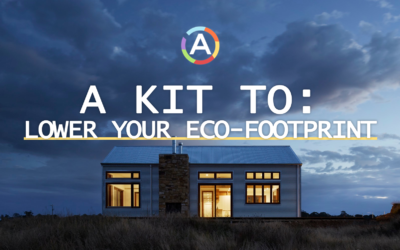

0 Comments